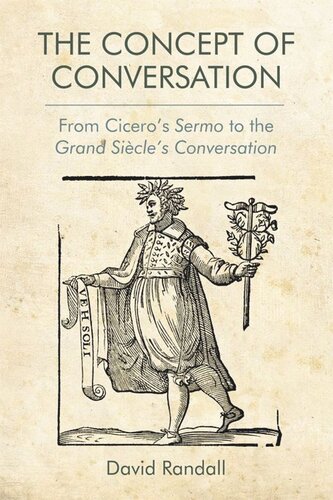

Most ebook files are in PDF format, so you can easily read them using various software such as Foxit Reader or directly on the Google Chrome browser.
Some ebook files are released by publishers in other formats such as .awz, .mobi, .epub, .fb2, etc. You may need to install specific software to read these formats on mobile/PC, such as Calibre.
Please read the tutorial at this link: https://ebookbell.com/faq
We offer FREE conversion to the popular formats you request; however, this may take some time. Therefore, right after payment, please email us, and we will try to provide the service as quickly as possible.
For some exceptional file formats or broken links (if any), please refrain from opening any disputes. Instead, email us first, and we will try to assist within a maximum of 6 hours.
EbookBell Team

4.8
94 reviewsIn the classical period, conversation referred to real conversations, conducted in the leisure time of noble men, and concerned with indefinite philosophical topics. Christianity inflected conversation with universal aspirations during the medieval centuries and the ars dictaminis, the art of letter writing, increased the importance of this written analogue of conversation. The Renaissance humanists from Petrarch onward further transformed conversation, and its genre analogues of dialogue and letter, by transforming it into a metaphor of increasing scope. This expanded realm of humanist conversation bifurcated in Renaissance and early modern Europe. The Concept of Conversation traces the way the rise of conversation spread out from the history of rhetoric to include the histories of friendship, the court and the salon, the Republic of Letters, periodical press and women. It revises Jürgen Habermas’ history of the emergence of the rational speech of the public sphere as the history of the emergence of rational conversation and puts the emergence of women’s speech at the centre of the intellectual history of early modern Europe.